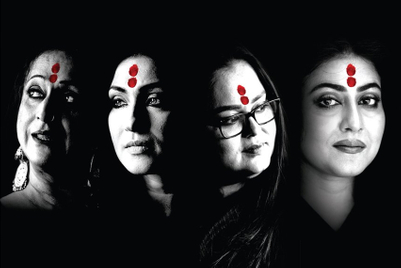
Rohit Ohri, group chairman and CEO, FCB India, and Sumeli Chatterjee, vice president, brand The Times of India, spoke about the importance of ‘cultural voltage’ on day two of Spikes Asia 2018.
Ohri kicked things off with pressing on the importance of brands to have a meaning. He said, “If you blink an eyelid, you’re copied. So brands are now looking to create a value rather than product benefits. It’s all about meaning. It’s this meaning that consumers adopt.”
The duo then spoke about the #NoConditionsApply campaign for The Times of India.
Chatterjee said, “We were consistently number two in Kolkata. The Bengali community did not accept us as one of them. When we connected with FCB, we told them that we were looking for acceptance in the market. We planned to talk about the cultural nuances in the Bengali community. We wanted to talk to the women in Kolkaka.”
She went on to explain how women in India are born with different expectations from men, and how they are getting tired of it. “We wanted to talk about women getting liberated and not connect that to men,” added Chatterjee.
Ohri added, “We wanted to take that ‘No Conditions Apply’ thought and bring in a cultural connect. In India, empowerment is conditional and depends on what the man believes in the family. We wanted to talk about progressive empowerment. In this concept of empowerment there was ‘no conditions apply’.”
He then explained how the campaign was a result of a three step process.
Culture: The campaign was centred around Durga Puja, a festival of inclusion.
Behaviour: Within Durga Puja, there’s a smaller ceremony which was celebrated only by married women. The Times of India wanted to change that and include widows, single women, lesbians and transgenders.
Symobilism: A symbol of two dots was created, which indicated one dot is for herself and the other for her sisters.
Chatterjee added, “We wanted to change the narrative of the festival. We had real people, real emotions and real conversations. We wanted real change.”
Ohri surmised, “What we felt that even though this campaign was running locally in Bengal, it impacted people across the country.”


.jpg&h=268&w=401&q=100&v=20250320&c=1)
.jpg&h=268&w=401&q=100&v=20250320&c=1)
.jpg&h=268&w=401&q=100&v=20250320&c=1)





